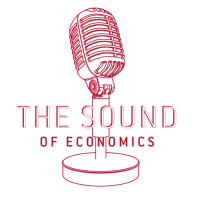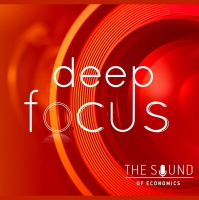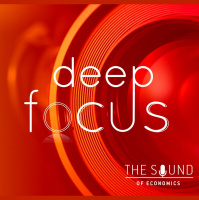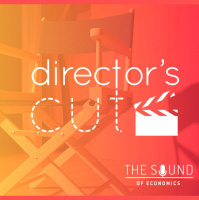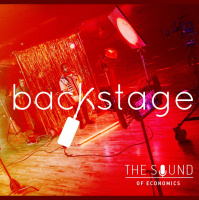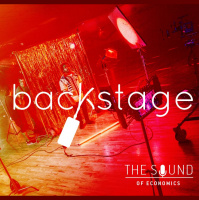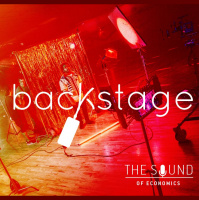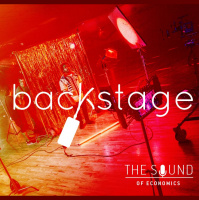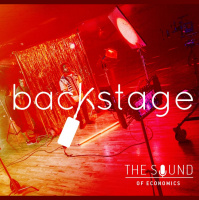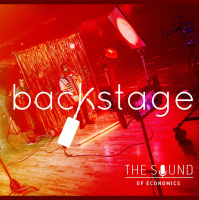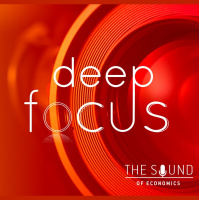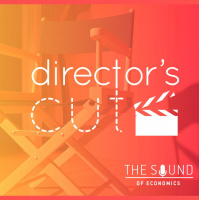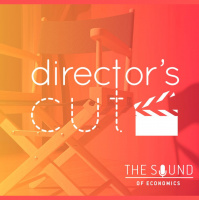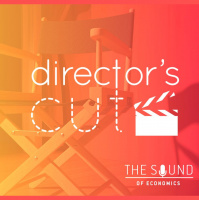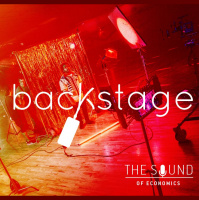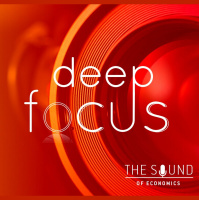Sinopsis
Bruegel is the European think tank working in the field of international economics. Established in 2005, Bruegel is independent and non-doctrinal. It seeks to contribute to European and global economic policy-making through open, fact-based and policy-relevant research, analysis and debate.
Episodios
-
S6: The art of the Brexit deal
17/10/2019 Duración: 23minThe British government has reached a deal with the EU27. The agreement is still subject to approval by the British and European parliaments, as well as the European Council. But is it good news for Brussels? How will Britain strike favourable trade deals when all this is over? And, with a new relationship between Brussels, London and the world yet be realised, is this the beginning of the end or just the end of the beginning?
-
S6: Brexit: a European Odyssey
10/10/2019 Duración: 42minNicholas Barrett and Guntram Wolff talk to Kalypso Nicolaïdis, author of Exodus, Reckoning, Sacrifice: Three Meanings of Brexit. Together they discuss the mythology that binds Britain to continental Europe
-
S5 Ep64: Deep Focus: What's slowing the Mercosur agreement?
27/09/2019 Duración: 10minThe European Union and Mercosur – a customs union covering Argentina, Brazil, Paraguay and Uruguay – have spent two decades negotiating a trade agreement. The gains are modest the ratification process will be anything but easy. Nevertheless, the deal is worth fighting for according to Uri Dadush. This week he joins Nicholas Barrett on our Deep Focus podcast to discuss the perils and process of an agreement that could be as significant to the globe's climate as it is for the global economy. Read the latest policy contribution by Michael Baltensperger and Uri Dadush on the same topic.
-
S5 Ep63: Deep Focus: What is a hybrid attack?
18/09/2019 Duración: 12minIncreasing cyber and hybrid risks will test the European Union’s system of fragmentation on issues of security but centralisation on financial and other economic issues. This asymmetry was not an obstacle in a world in which security threats were more contained or of a different nature. But the world is changing. But what is a hybrid attack and whose responsibility is it to deal with? Last week Bruegel's Director, Guntram Wolff and our Deputy Director Maria Demertzis presented a paper on the subject to ECOFIN, an informal meeting of European finance ministers in Helsinki. In this episode of Bruegel's "Sound of Economics" podcast, Nicholas Barrett sits down with Guntram Wolff to find out.
-
S5 Ep62: Director's Cut: The Green New Deal
11/09/2019 Duración: 23minThe layout of the commission has largely changed this year. A key part being that there are now three executive Vice Presidents, driving three main economic issues. Frans Timmermans, responsible for the implementation of the Green Deal; Margrethe Vestager, responsible for the digital age and competition policy and Valdis Dombrovskis, responsible for economy and financial services. The major change being that, in this commission, the Vice Presidents also have their own portfolio and Directorate-Generals to oversee, suggesting these three will be instrumental in driving the political priorities of commission. In this episode of 'The Sound of Economics' Bruegel director Guntram Wolff discusses with Simone Tagliapietra the new commission setup and Ursula von der Leyen's European Green Deal. In his previous blog post on the Green Deal, Simone argues not only does it aim to reduce the continent's emissions, but it also has the potential to grow the EU's economy and transform the bloc's politics. He also state
-
S5 Ep61: Backstage at BAM19: Designing a competition policy fit for Europe's needs.
05/09/2019 Duración: 12minShould competition policy adjust to current concerns and support industrial policy? How can we contextualise long-run consumer welfare? How can we maintain independence and objectivity in enforcement? In this podcast, Rebecca Christie discusses competition policy, with Mathew Heim.
-
S5 Ep60: Backstage at BAM19: How much further reform is needed for the new financial sector?
05/09/2019 Duración: 24minIs current financial architecture working as intended? If not, can it be fixed at the margin, or does it require holistic overhaul? Can such reforms be envisaged in a way that gives satisfaction to most or all member states? In this podcast, Rebecca Christie discusses financial sector architecture with Nicolas Véron.
-
S5 Ep59: Backstage at BAM19: Enhancing Europe's economic sovereignty
05/09/2019 Duración: 09minWhat can the EU’s incoming leadership do to protect Europe’s economic autonomy in light of America and China’s economic, geopolitical struggle for supremacy? In this podcast, Nicholas Barrett discusses enhancing Europe’s economic sovereignty, with Jean Pisani-Ferry.
-
S5 Ep58: Backstage at BAM19: Priorities for Europe's monetary union
05/09/2019 Duración: 15minHow complete is Europe’s monetary union? Is the euro area ready for a next recession or an economic crisis? What should be the reform priorities? In this podcast, Nicholas Barrett discusses the priorities for Europe’s monetary union, with Zsolt Darvas.
-
S5 Ep57: Backstage at BAM19: AI, robots and platform workers
04/09/2019 Duración: 12minWill increasing use of AI, machine learning, robots and big data lead to massive unemployment? How are non-traditional workers and the self-employed to obtain health insurance and pensions? What role should public policy play going forward? In this podcast, Giuseppe Porcaro discusses the future of AI, robots and platform workers, with J. Scott Marcus.
-
S5 Ep56: Backstage at BAM19: Which priorities for the new EU leadership?
04/09/2019 Duración: 10minWhen the last Commission took office in 2014, Europe was consumed by the eurozone crisis. Today, the incoming leadership must decide how to deal with a variety of issues. In this podcast, Rebecca Christie discusses the priorities for the new EU leadership, with Guntram Wolff.
-
S5 Ep54: Backstage at BAM19: How can Europe's economy thrive in the digital age?
04/09/2019 Duración: 11minWhat corporate strategies and public policy support are needed to turn the potential of digital technologies into opportunities for sustainable growth of EU firms, and for addressing EU societal challenges? In this podcast, Giuseppe Porcaro discusses how Europe’s economy can thrive in the digital age, with Reinhilde Veugelers.
-
S5 Ep55: Backstage at BAM19: Europe's trade policy
04/09/2019 Duración: 14minHow should and will the EU position itself vis-à-vis the US and China, both bilaterally and multilaterally in the context of the WTO system? In this podcast, Giuseppe Porcaro discusses Europe’s trade policy, with André Sapir.
-
S5 Ep53: Deep Focus: Energy transition in the next EU institutional cycle
10/07/2019 Duración: 16minWhen the dust settles after the recent European elections, and as the new Commission takes office, the problem of climate change - and its accompanying policy challenges - will remain one of the EU's chief agenda items. One significant facet is the transition of Europe's energy generation to more renewable sources. The EU has to find a way to decarbonise particular sectors much more quickly than has been managed so far, while allowing for and managing the distributional consequences of such policies for the continent's population. Simone Tagliapietra has co-written a research paper on energy transition with his Bruegel colleague Georg Zachmann, as well as Jean-Michel Glachant, director of the Florence School of Regulation; Pedro Linares, professor at Universidad Pontificia Comillas; Andreas Loeschel, professor at the University of Muenster; and Ottmar Edenhofer, director and chief economist at the Potsdam Institute for Climate Impact Research. If you would like to read more on this topic, we suggest Simone
-
S5 Ep52: Director's Cut: Priorities for the new ECB president
04/07/2019 Duración: 26minA difficult proposition faces the new ECB president – monetary union remains incomplete, the bank lacks room to manoeuvre in applying new tools, and it is not yet clear what constitutes the new economic ‘normal’. In this episode of 'The Sound of Economics' Bruegel director Guntram Wolff addresses deputy director Maria Demertzis and research fellow Grégory Claeys, who together with senior fellow Francesco Papadia have written a memo to the incoming ECB president. In their note, the authors state that the ECB needs to begin this eight-year term by reviewing monetary policy framework to account for the increasingly uncertain environment in which it will have to operate. In that vein, the incoming president will have to be prepared to emulate previous actions, providing certainty when it cannot be found elsewhere. In addition, the authors propose methods by which the ECB can bolster the euro-area architecture while continuing to fulfil its role in promoting financial stability. For further reading on this top
-
S5 Ep51: Director's Cut: ECB monetary policy decisions deconstructed
27/06/2019 Duración: 17minThe next president of the ECB, much like his predecessors, will have the difficult task of dealing with the balance between speaking with one voice and making timely, optimal decisions for the euro area as a whole. In this episode of ‘The Sound of Economics’, Bruegel deputy director Maria Demertzis speaks with Bruegel research fellow Grégory Claeys about the evolution of decision-making of the previous three governors and the differences in the effects of interest rates. Grégory Claeys and Tanja Linta have published a blog post creating a database to look back and examine precisely how decisions have been taken since the ECB was created.
-
S5 Ep50: Deep Focus: Making a success of EU cohesion policy
20/06/2019 Duración: 22minCohesion policy remains a contentious topic in the EU, central as it is to the matter of convergence between regions. The need to share economic growth throughout the bloc is particularly acute in the wake of notable electoral advances from several more populist political parties in Europe in recent years. Bruegel senior fellow Zsolt Darvas explains how his recent study, co-written with Jan Mazza and Catarina Midões, adopts a new methodology with the aim of avoiding the complicating factors that have underpinned the greatly varied results of many previous assessments of cohesion-policy effectiveness. He explains further how the EU might refine its implementation of cohesion policy, and looks ahead to what might be the biggest obstacles to improvement. For further reading, we recommend the Bruegel Policy Contribution at the centre of this Deep Focus episode, ‘How to improve European Union cohesion policy for the next decade’.
-
S5 Ep49: Director’s Cut: A strategic agenda for the incoming EU presidents
12/06/2019 Duración: 21minThe next presidents of the European Commission, Council and Parliament will inherit a relatively healthy European economy, but will face three formidable challenges in the next five years. First, the incoming presidents must define Europe’s place in an increasingly bipolar world driven by a geostrategic rivalry between the United States and China. Second, global warming is a reality and temperatures appear to be rising faster than forecast. Third, the three presidents need to manage the economy and EU cohesion. In this episode of ‘The Sound of Economics’, Bruegel director Guntram Wolff speaks with Bruegel deputy director Maria Demertzis about the specific measures that the new incumbents should take to tackle these challenges. Together with senior fellow André Sapir, the two discussants have co-written Bruegel’s memo to the three new presidents, elaborating on the policy priorities for the next institutional cycle.
-
S5 Ep48: Backstage: Making the most of climate modelling
06/06/2019 Duración: 25minIn this episode of 'The Sound of Economics', Bruegel senior fellow Georg Zachmann continues the Backstage series with an interview with Massimo Tavoni, professor at the Politecnico di Milano and director of EIEE. The discussion point is climate modelling - specifically its use and the necessity of complexity in some of its formulations. Some climate models are very straightforward, and this allows for the building of a solid base. But interaction between complex systems requires consideration of a multitude of factors, not all of which are easily measurable. Modelling can be productive as a means of plotting a route to a policy goal such as the Paris Agreement. And the outcomes are best viewed as producing only one of many possible routes that could be taken. These models are increasingly relevant for numerous sectors, all beginning to factor in not only climate change but climate-change policy. If you are interested in more on this topic, we recommend the Bruegel Blueprint co-written by Georg Zachm
-
S5 Ep47: Deep Focus: Striving for research excellence with Horizon Europe
04/06/2019 Duración: 16minThe European Union's next framework programme for innovation and research - 'FP9', better known as Horizon Europe - will run from 2021 to 2027. With the rise of China as an increasingly direct competitor with the EU and the US, this will be a vital period. Bruegel senior fellow Reinhilde Veugelers, together with Michael Baltensperger, has produced an analysis for the European Parliament's Committee on Industry, Research and Energy. The research paper, on which Reinhilde elaborates in this episode of the Deep Focus podcast, looks at what needs to be prioritised in the next framework programme in order to maintain and improve Europe's position as a leader in this increasingly competitive field. For further reading we recommend the paper in question, 'Europe – the global centre for excellent research', as well as Reinhilde Veugeler's previous Bruegel Policy Contribution, 'Are European firms falling behind in the global corporate research race?'


